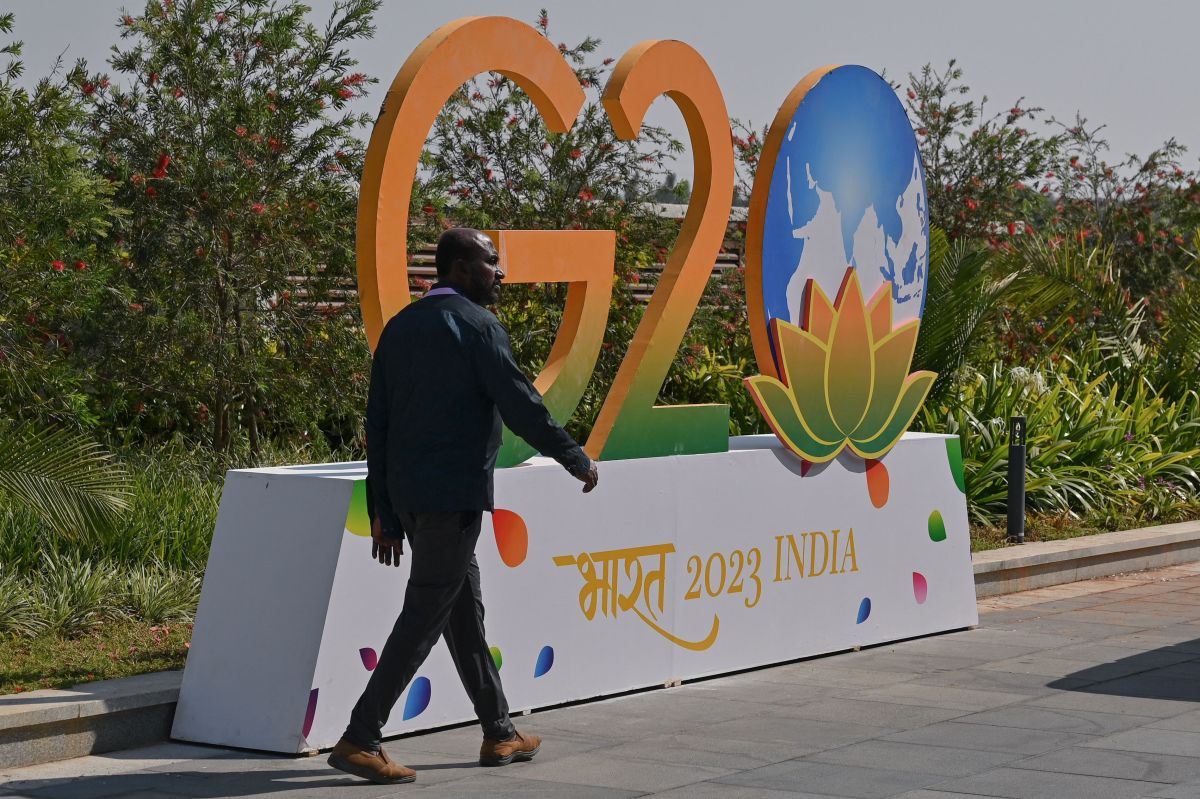The war in Ukraine accentuated the geopolitical fragilities of the G20 at the end of the first meeting of finance ministers in the Indian city of Bangalore, with representatives failing to reach a joint group agreement due to disagreements on the language of the text.
The ministers could not achieve unanimity on two of the almost twenty points reflected in the summary of the meeting, which in the absence of an agreement summarized what was discussed and the differences of the last two days.
The first of them is the text to deplore “in the strongest terms” Russia’s aggression against Ukraine and that “demands its total and unconditional withdrawal from the territory of Ukraine.”
The other point that fragmented the group was the duty to “defend international law and the multilateral system that safeguards peace and stability”, which frame the imposition of sanctions to punish Russia.
These paragraphs were rejected by China and Russia, according to the summary.
“Even though there was what you would call a non-communication, or just a statement of results, I still think we have made good progress by having all the ministers on board,” India’s finance minister told a news conference. , Nirmala Sitharaman.
The meeting took place on the first anniversary of Russia’s invasion of Ukraine, and the same week that India abstained from voting on a United Nations General Assembly resolution calling for a “cessation of hostilities” in that country and withdrawal. of the Russian troops, which ended up garnering 141 votes in favour.
Although there is no objection from New Delhi in the summary, India’s position on the conflict was seen as one of the impediments for the G20 ministers to end the meeting with the unanimous adoption of a declaration. So far, India, which chairs the G20 group this year, has not alone condemned the Russian offensive.
Indian Prime Minister Narendra Modi opened the meetings last Friday with a video message in which he addressed the moment of hostility but did not refer to Russia.
The Vice President of the Government of Spain, Nadia Calviño, had advanced hours before in a press conference, that “the talks are becoming more difficult than in the previous meetings because, while the war continues, some of these positions are perhaps being less constructive in these issues”.
“At the same time, we are being able to make progress,” Calviño said in Bangalore.
French Finance Minister Bruno Le Maire has demanded a firm condemnation, or else announced that he will oppose any joint statement that waters down the rejection voiced by the group in Bali last year.
For her part, the United States Secretary of the Treasury, Janet Yellen, also referred to the differences with those nations that have not been firm in condemning and isolating Moscow, comments also considered as an allusion to India and China. that have seen their trade relations with Russia increase.
Sitharaman spoke of the increase in oil purchases from Russia as decisions made “in the national interest that will continue.”
The scenario recreates the positions in the G20 last year at the Bali summit in which, in the absence of consensus, Indonesia at the head of the presidency issued a summary statement with the meetings and disagreements of this group that sees increasing difficulties in responding on the whole.
With the global debt exceeding $300 trillion dollars, in the hands of public and private creditors, the ministers were also looking for an agreement on this matter and formulas to handle insolvency and liquidity problems.
This is the case of countries like Zambia or Sri Lanka, deeply indebted, without sufficient capacity to maintain the functioning of their governments.
Although these negotiations will continue in the coming months, the Indian minister welcomed the fact that an agreement was reached in this regard on the language to refer to the critical situation in several countries and the need for a joint mechanism.
China, the largest bilateral creditor, is under great pressure from the United States to make cuts and restructure the debt of seriously affected nations, to which Beijing responds by asking both Washington and multilateral organizations to also assume part of these commitments.
Also read:
- Vladimir Putin accuses NATO of complicity in the crimes of the “kyiv regime”
- CIA Director Says China Has Not Yet Made A Decision To Send Weapons To Russia
- Hundreds of people demonstrated in Washington DC in support of Ukraine and against Vladimir Putin
